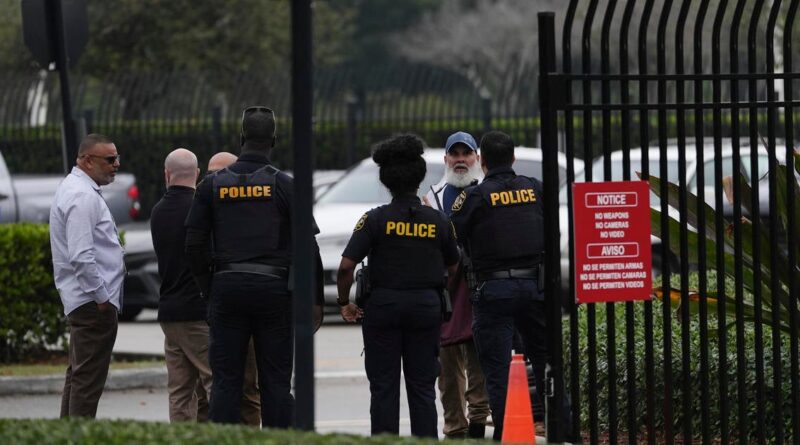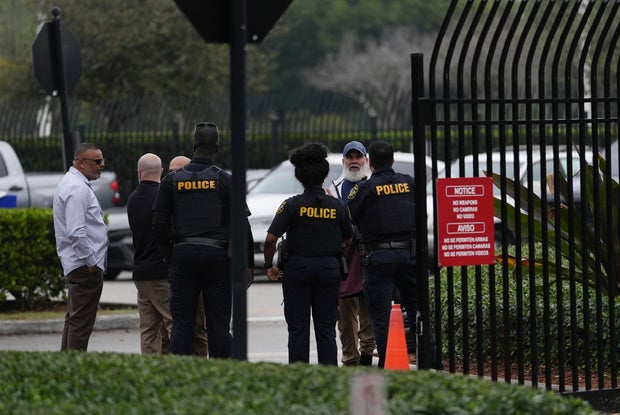Trump vows retaliation after Colombia rejects U.S. military-assisted deportation flights
Washington — President Trump on Sunday vowed swift and punishing retaliation after the Colombian government over the weekend blocked the arrival of deportation flights from the U.S., objecting to the Trump administration’s efforts to use military planes to deport migrants.
Mr. Trump posted on social media on Sunday that his administration will put in place several actions against Colombia, including a 25% tariff — that he said will be raised to 50% after one week — on all goods coming into the U.S. from Colombia.
He also announced a travel ban and “immediate visa revocation” for Colombian government officials and “their allies,” visa sanctions on Colombian authorities and their relatives and enhanced customs inspections on travelers and cargo from Colombia.
“These measures are just the beginning,” Mr. Trump wrote on his social media platform Truth Social. “We will not allow the Colombian Government to violate its legal obligations with regard to the acceptance and return of the Criminals they forced into the United States!”
A senior administration official said Mr. Trump’s actions amounted to “a clear message” to countries that they “have an obligation to accept repatriation flights.”
Colombian President Gustavo Petro in response posted on social media said to Mr. Trump “Your blockade doesn’t scare me,” and said he would respond to the raised tariffs in kind. In reference to the travel ban, Petro said, “I don’t really like traveling to the U.S., it’s a bit boring.”
Petro also predicted the U.S. could “try to carry out a coup with your economic strength and your arrogance, like they did with Allende. … Overthrow me, President, and the Americas and humanity will respond,” Petro wrote.
In a statement, Secretary of State Marco Rubio said it was Colombia’s responsibility to take back citizens who are illegally in the U.S. “in a serious and expeditious manner.”
“Colombian President Petro had authorized flights and provided all needed authorizations and then canceled his authorization when the planes were in the air,” Rubio said. “As demonstrated by today’s actions, we are unwavering in our commitment to end illegal immigration and bolster America’s border security.”
Earlier on Sunday, Petro said he rejected the deportation flights because the deportees were being transported in military aircraft, arguing such a move treated migrants as criminals.
Rebecca Blackwell / AP
“The United States must establish a protocol for the dignified treatment of migrants before we receive them,” Petro wrote on social media. He added that he would accept deportation flights, as long as they were conducted on civilian planes.
A U.S. official told CBS that the Colombian migrants who were scheduled to be deported on Sunday on these planes are back in the U.S. and will remain in DHS custody until a new agreement is reached.
Two U.S. officials told CBS News there were two Department of Defense planes with migrant deportees expected to land in Colombia on Sunday, after departing the San Diego area near the southern border. But those plans were scrapped overnight.
One of the U.S. officials said the plan was to deport roughly 80 Colombian migrants on each military plane.
Colombia’s government has offered the use of its presidential plane to help facilitate the return of the migrants, but a senior Trump administration official said that would not be enough to stave off Mr. Trump’s proposed tariffs and sactions.
Colombia’s decision to block the U.S. deportation flights over the weekend is an early diplomatic setback for the Trump administration as it lays the foundation for its promised mass deportation campaign and crackdown on illegal immigration.
As part of that crackdown, President Trump has moved to vastly increase the role the U.S. military plays in immigration enforcement, declaring a national emergency to deploy an additional 1,500 Army soldiers and Marines to the southern border. The troops have been assigned to erect border barriers and help Customs and Border Protection in an operational capacity. Long-standing legal limits bar the use of soldiers for the civil enforcement of laws, including U.S. immigration law.
Earlier in the week, the administration used military aircraft to deport Guatemalan migrants who had crossed the southern border illegally back to Guatemala, publicizing the move as the start of their mass deportation effort.
contributed to this report.



